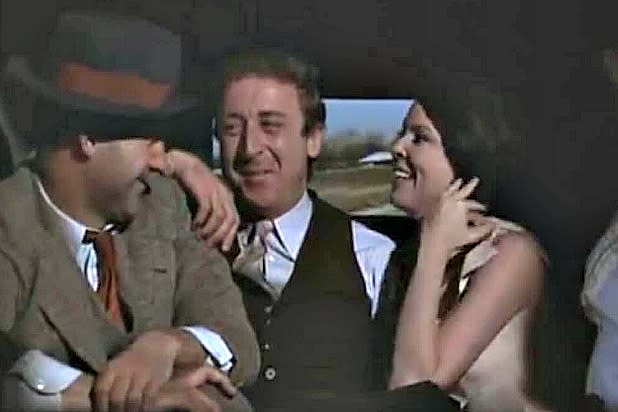The Looming Recession: How Much Damage Will it Do in Hollywood?
When the looming recession arrives in Hollywood — sometime late this year or early next, as most analysts predict — just how bad will it be for entertainment industry? Will there be massive layoffs? Or merely hiring freezes? Will it decimate box office? Or actually help it? How would a downturn impact the streamers, the studios, the networks, and everyone else in town?
TheWrap consulted a variety of sources — economists, industry insiders, academics — and the general consensus seems to be that there’s no general consensus on exactly what to expect, other than that whichever way the economy goes, Hollywood will surely be caught unprepared.
“I’m old enough to have gone through several recessions,” says Corey Martin, managing partner and chair of Granderson Des Rocher’s Entertainment Finance Practice. “And in my prior experience, there seems to be kind of attempted denial in Hollywood: ‘It’s not gonna affect us.’ But it always does. These recessions seem to go from Wall Street to Main Street, and Hollywood tends to come next.”
Also Read:
Even Disney Can’t Shake Wall Street’s Recession Fears About Hollywood Stocks | Analysis
Still, Martin falls on the optimistic end of the spectrum, predicting a fairly mild recession, with some hiring freezes and a shift in how Hollywood thinks about money. “When you’re going through the budgeting process, you have the kind of the optimistic case and then you have the more conservative case,” he says. “It’s kind of like when you’re on a plane and the pilots inform you that we’re entering into a period of turbulence. You want to buckle your seatbelt. So, I’m advising [people] to buckle up.”
Other, more pessimistic observers, though, see the plane crashing. “This is a breaking point in Hollywood,” says Stephen Galloway, Dean of Dodge College of Film and Media Arts at Chapman University. “It’s absolutely going to hit. Netflix’s stock plunging, inflation where people are cutting back on spending — we’re clearly heading to a recession.”

In either scenario, there are some belt-tightening changes Hollywood can definitely expect. For starters, deal-making will become more challenging. Even deals in advanced stages could fall apart as recession creeps closer, says Martin, who expects contracts to start looking very different than they did a year or two ago. “It’s not really the time to haggle and get the perfect deals,” he says. Instead, he thinks dealmakers will settle for something “they can live with.”
“We’ve lost that feeling of there’s all this money in the system to be spent,” agrees Stephen Saltzman, head of the International Entertainment Group of the law firm Field Fisher. “That’s really what’s been taken away.”
Also Read:
As Streamers Pivot to Advertising, the Big Winners Will Be the Devices You Use to Watch
Another likely imminent change: entertainment consumers will almost certainly pull back on their spending. “We will see subscription cutting,” predicts Saltzman. “We are likely to see less cinema-going for the non-tentpole films, accelerations of all these trends that we’ve seen before, and they will just continue to accelerate.”
For the streamers, the future could be especially bumpy, although that probably would have been the case even if a recession wasn’t on the horizon. The days of mad spending on content —like Netflix, before its stock lost half its value, sinking $200 million into films like The Gray Man — were numbered already, says industry analyst Hal Vogel. He estimates that the major streamers blew through some $45 billion on content in 2022. “Who’s going to watch all that?” he wonders. “And who’s going to pay for it?”
Even if public appetite for streaming continues to remain veracious through a recession, a downturn would still put a crimp in Disney+ and Netflix’s plans to revive their growth by adding ad-supporting tiers to their services. “Advertising, of course, is going to go way down,” notes Schuyler Moore, partner in the corporate entertainment department of the law firm Greenberg Glusker. “And that affects everyone.”
Also Read:
How Reality TV Can Help Streamers Ride Out the Coming Economic Roller Coaster | Chart
Of course, there are some bright spots. Most observers seem to think movie-lovers will continue to line up at theaters, at least for big tent-pole pictures (like the one with Tom Cruise in a jet, which has so far grossed more than $600 million in the US). Indeed, some analysts believe a recession might help actually be good for the movie biz. “Go back to the 1930s, or even 2008,” says Moore. “There was, if anything, an increase in theater attendance.”

Writer-producer Cliff Dorfman, president of DreVision Studios production company, goes so far as to foretell a cinematic renaissance emerging from the ashes of impending economic hardship. This coming recession, in his logic, would be something like the economic dip at the start of the Kennedy administration, which was followed by a financial and creative boom unlike any other in American history, also known as the 1960s.
“Where I think where we’re going is around 1966,” Dorfman says. “When ‘Bonnie and Clyde’ came out, and we saw the French New Wave. We saw a new Hollywood, a revolution of this new batch of filmmakers.”
Brandon Katz, Antoinette Siu and Brian Welk contributed to this report

